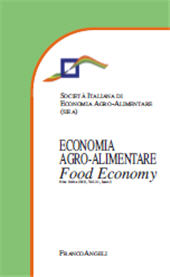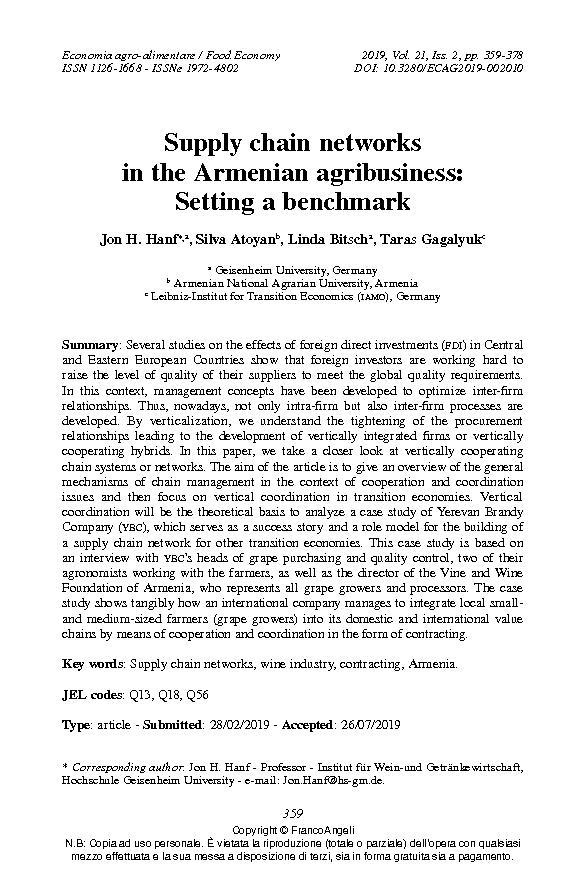Supply chain networks in the Armenian agribusiness : setting a benchmark
359-378 p.
Several studies on the effects of foreign direct investments (fdi) in Central and Eastern European Countries show that foreign investors are working hard to raise the level of quality of their suppliers to meet the global quality requirements. In this context, management concepts have been developed to optimize inter-firm relationships. Thus, nowadays, not only intra-firm but also inter-firm processes are developed. By verticalization, we understand the tightening of the procurement relationships leading to the development of vertically integrated firms or vertically cooperating hybrids. In this paper, we take a closer look at vertically cooperating chain systems or networks. The aim of the article is to give an overview of the general mechanisms of chain management in the context of cooperation and coordination issues and then focus on vertical coordination in transition economies.
Vertical coordination will be the theoretical basis to analyze a case study of Yerevan Brandy Company (ybc), which serves as a success story and a role model for the building of a supply chain network for other transition economies. This case study is based on an interview with ybc's heads of grape purchasing and quality control, two of their agronomists working with the farmers, as well as the director of the Vine and Wine Foundation of Armenia, who represents all grape growers and processors. The case study shows tangibly how an international company manages to integrate local smalland medium-sized farmers (grape growers) into its domestic and international value chains by means of cooperation and coordination in the form of contracting. [Publisher's text].
Fa parte di
Economia agro-alimentare : XXI, 2, 2019-
Articoli dello stesso fascicolo (disponibili singolarmente)
-
Informazioni
Codice DOI: 10.3280/ECAG2019-002010
ISSN: 1972-4802
PAROLE CHIAVE
- Supply chain networks, wine industry, contracting, Armenia



